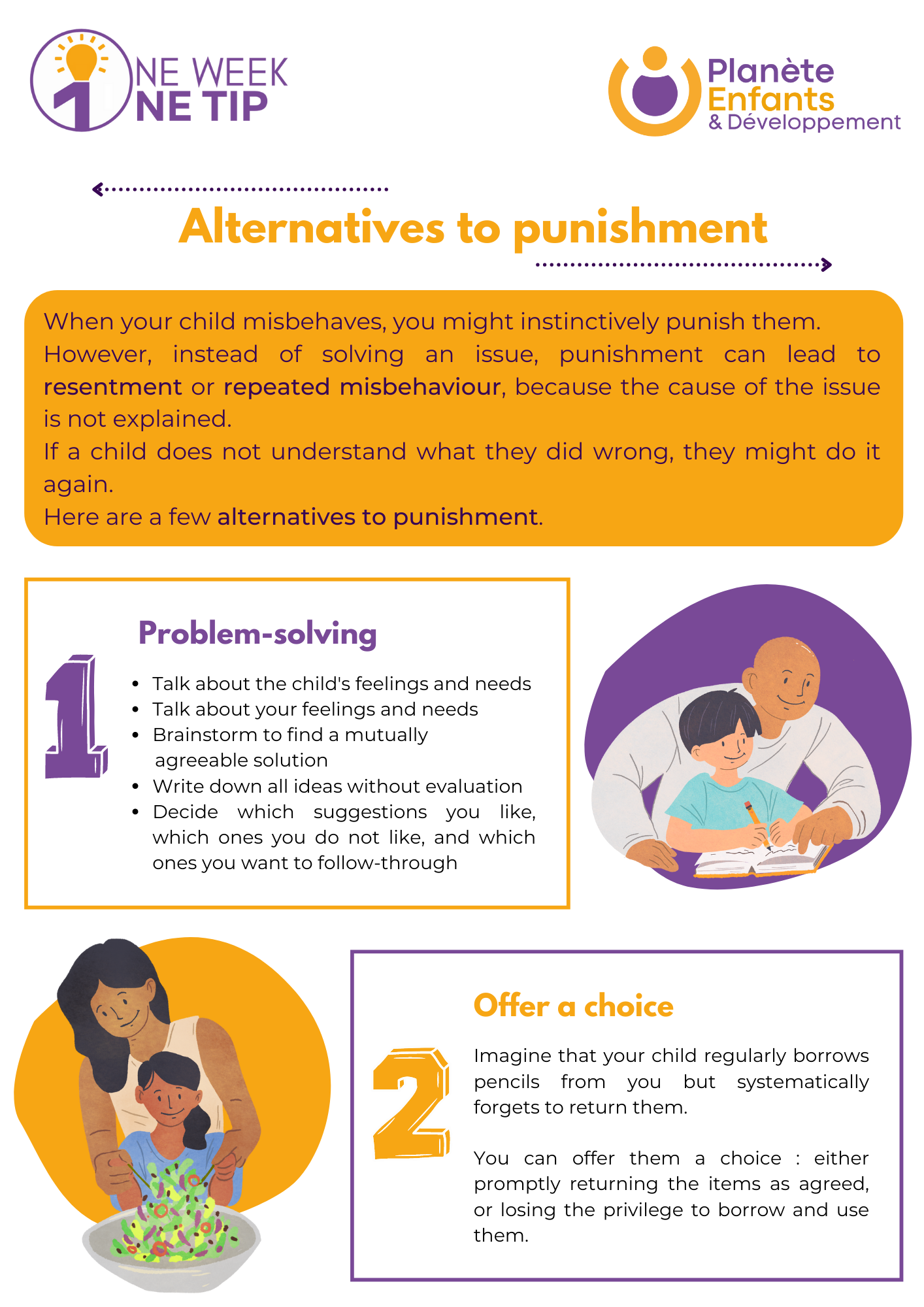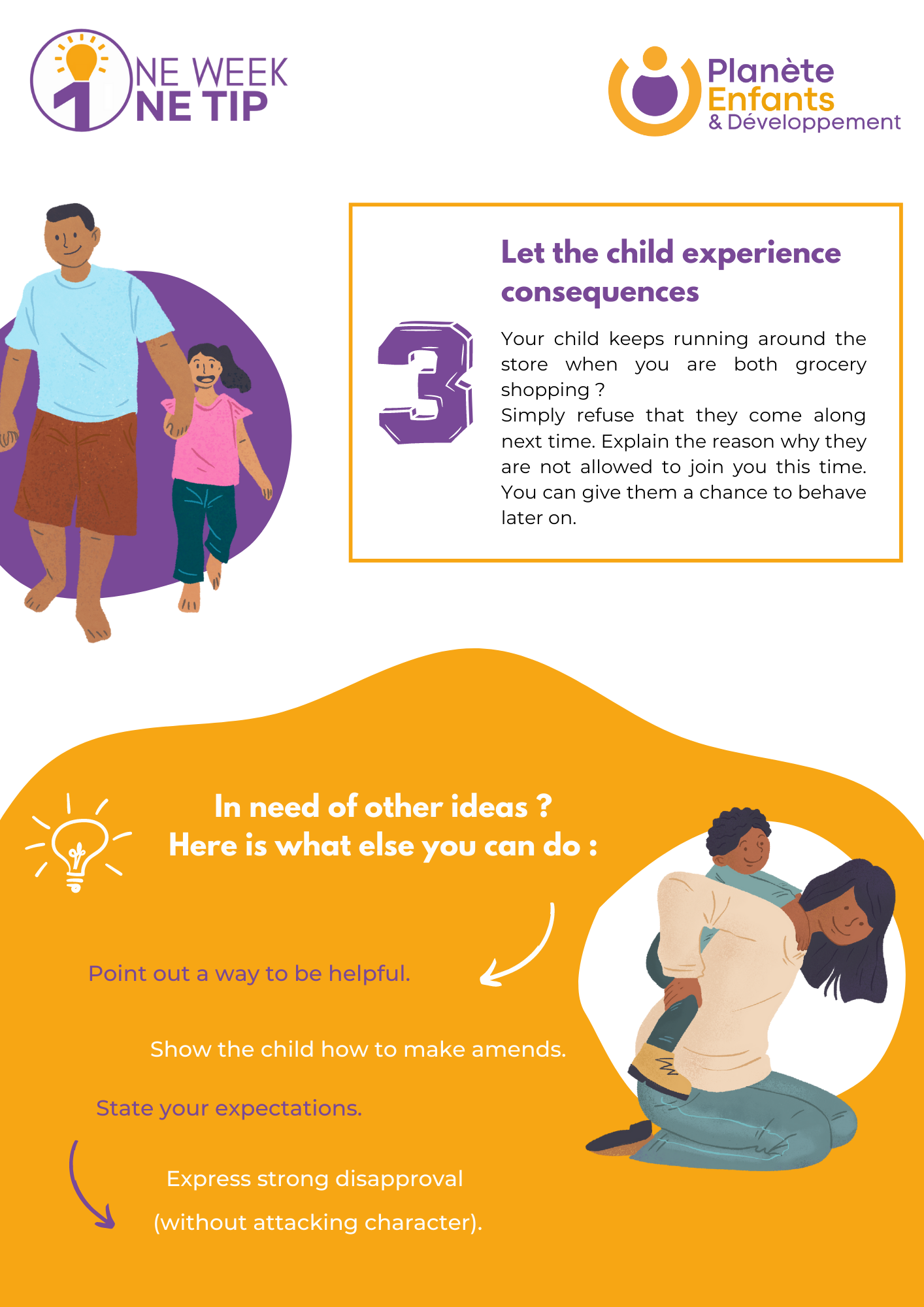
Punishment
Today we want to talk about punishment.
To begin, try to remember a punishment you received as a child. Do you remember why you were punished? What was the punishment you received?
Now try to remember how you felt at that time? If the punishment was physical, maybe you felt pain. If your parents yelled at you, maybe you felt fear. If you were deprived of something (from going out, from TV...) maybe you felt injustice. What were the feelings you had towards your parents? Maybe you thought you hated him or her or that he or she didn't love you anymore? Strong feelings. But do you remember why you were punished? If so, do you think today that your parent's reaction was justified? Was the punishment effective: did you do what you were punished for again?
Today, with the progress of neuroscience, 60 countries including France (July 2019) and Nepal (2018) have banned corporal punishment (including spanking) but what alternatives do we have as parents and professionals when faced with our children's misbehavior?
Depending on the age of the child, several alternatives are available to us. In their book "How_to_Talk_So_Kids_Will_Listen" Faber & Mazlish explain that the alternative to punishment is reparation: to make your child understand that he disobeyed or that he did not act correctly by making him repair his own mistake will allow him not to do it again without violence or shouting, without corporal punishment or trauma (because if you remember the time your mother gave you a spanking, then it is a trauma), while preserving the relationship between the child and his parent, while guaranteeing that the emotions of both parties are taken into account, while maintaining a positive nature/form of education.
When a problem persists, we can usually assume that it is more complex than it originally appeared. For a complex problem, a more complex skill is needed. Parent educators, labor negotiators, marriage counselors have worked out some excellent detailed methods for resolving difficult conflicts.

